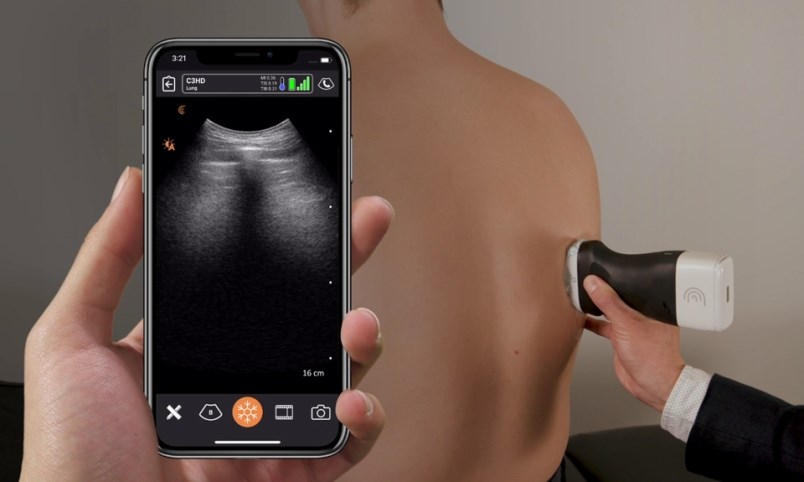UBC researchers say rural B.C. doctors will be among the first to use a network of 50 portable, handheld ultrasound scanners that could help accelerate COVID-19 diagnosis.
A UBC news release said a further 30-plus scanners would be distributed to urban acute care sites managed by Vancouver Coastal Health (VCH). An updated Providence Health Care release said 32 scanners would be distributed to Lower Mainland acute care sites.
Indeed, an informal poll of health authorities showed no knowledge of the deployments. VCH, Fraser Health and Interior Health authorities communications departments are looking into the issue.
The scanners pair a commercial ultrasound device with an online library of lung ultrasound images and a specially developed artificial intelligence algorithm to allow health care workers to give a diagnosis almost instantly.
“With this scanner, we can potentially detect COVID-19 lung changes earlier while waiting for lab test results,” Dr. Teresa Tsang, a project co-leader and a UBC cardiologist, professor of medicine and director of echocardiography at Vancouver General Hospital and UBC Hospital.
“This may also enable us to anticipate who will likely deteriorate rapidly, so that we can support these patients optimally from the start.”
A UBC news release said field data suggests such scanners can detect up to 33 per cent more cases of COVID-19 pneumonia than some current lab tests.
“It’s easy to use, so even physicians with less experience can obtain fast, accurate results,” Tsang said.
Burnaby-based Clarius Mobile Health designed the scanners—called PoCUS, for point-of-care ultrasound.
The technology has become very useful for picking up a “twinkling” on the surface of COVID-19 patients’ lungs that indicates pneumonia, said Clarius vice-president of research and development Kris Dickie.
“The level of this twinkling indicates how severe the pneumonia might be in the lungs,” he said. “It’s quite a good tool once you know what you’re looking at and how to do the scan.”
Since the beginning of the pandemic, Dickie said sales of his company’s second-generation device, Clarius HD, which launched in November, have doubled, from about 150 devices per month to about 300.
“We can’t build fast enough,” he said. “Our back order is still millions of dollars of goods right now.”
It was in Italy in March that the company first saw demand surge.
Until then, Clarius had carved out a solid niche in the private market, selling 95% of its devices to private doctors, clinics and physiotherapists.
With COVID-19, however, demand has surged in hospitals, as health-care workers dealing with an avalanche of cases recognize the advantage of the cordless, handheld devices for quick, bedside lung assessments.
Compared to the bulky traditional machines, handhelds are cheaper (starting at $6,500 per unit compared with about $100,000), easier to keep clean inside a single-use sleeve and more convenient, Dickie said.
Doctors at a bedside can start scanning within seconds and view the images on a smartphone or tablet.
All that has made the pocket ultrasound devices a hot commodity in hospitals around the world.
Clarius recently made its single biggest hospital sale, for 100 devices, to a hospital in Maryland, Dickie said.
Now that the handheld devices are being used more widely in hospitals, he’s confident their advantages will keep demand high even after the pandemic.
“There’ll be so much exposure with portable ultrasound, and not just Clarius but even our competition, that a lot of doctors and departments will say, ‘Hey, we can start using these devices instead of the big machines.’”
Also on the project are Dr. Oron Frenkel, an emergency physician at St. Paul’s Hospital and a clinical assistant professor at UBC’s faculty of medicine; Purang Abolmaesumi, professor of electrical and computer engineering; and Robert Rohling, professor of electrical and computer engineering and mechanical engineering.
Canada’s Digital Supercluster program provided $2 million for the development of the scanners project. But, when COVID appeared, research shifted to assist in diagnosis. Then, an additional $500,000 came from the Supercluster, Providence, Clarius, Change Healthcare and UBC.
@jhainswo



